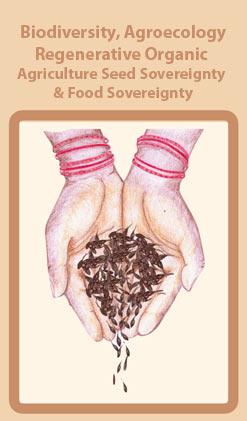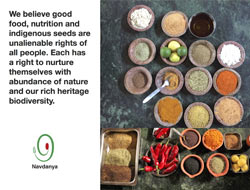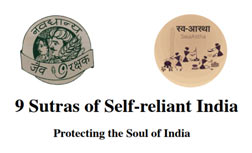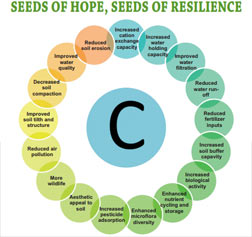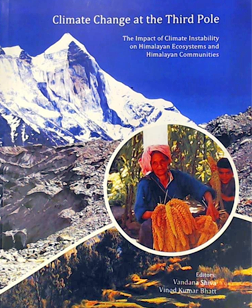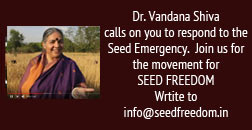The Independent People's Tribunal on Land Acquisition, ResourceGrab and Operation Green Hunt after presiding over 3 days of depositions and testimonies, presented their recommendations on the situation to the public and the Government.
Presenting the recommendations of the jury before the media, public and Government, Justice (Retd.) Sawant said “There is a perception within the Goivernment and media that by organising meetings like the IPT, we, everyone present in this room are supporting the Maoists and the death of the 76 CRPF jawans. Let me clarify this position for once and for all: We are not supporting the Maoists. We do not support violence in any form, State or otherwise. We here are discussing problems of the tribals and the crisis that is pushing people to a brink of desperation and escalating the cycle of violence.” It is clear that the state had let the tribals and the poor of this land down. Instead of restoring their faith in the Constitution of India, its judiciay and its spirit, the Government asked for abjuring of violence. “Are these morals only to be remembered in such times, and to be forgotten when atrocities are committed by the state itself?”
The interim report of the Jury states “gross violation of the rights of the poor, particularly tribal rights, which have reached unprecedented levels since the new economic policies of the 90’s. The 5th Schedule rights of the tribals, in particular the Panchayat Extension to Scheduled Areas (PESA) Act and the Forest Rights Act have been grossly violated. These violations have now gone to the extent where fully tribal villages have been declared to be non-tribal. The entire executive and judicial administration appears to have been totally apathetic to their plight. It could well be the severest indictment of the State in the history of democracy anywhere, on account of the sheer number of people (tribals) affected and the diabolic nature of the atrocities committed on them by the State, especially the police, leave aside the enormous and irreversible damage to the environment. (Attached is the interim jury report).
The first session of the day took stock of the situation in Orissa with regards to industrial and mining projects, land acquisition and people's resistance movements against such displacement, disposession. Addressed by activists Praveen Patel, Praful Samantra, Abhay Sahu and photographer Sanjit Das, the narratives pointed out to how corporate greed colluding with government officials was bleeding out the tribals. Praveen Patel presented a paper on the 'Political Economy of Mining' and pointed out that under the current policy, foreign companies were getting away with virtual robbery, taking huge profits, paying very little in taxes and in fact exacting a huge price from the poor (especially tribals) who are displaced and who suffer severe health and livelihood impacts from the rampant pollution.
The problematic exploitation of iron and bauxite ore was further highlighted in Praful Samantra's talk. For example, the sites containing the most bauxite ore are located atop mountains and correspond to the sources of numerous streams. Mining the ores amounts to ruining the water supply for the adivasis living in the area, while leaving the company with zero liability. Protests are suppressed in a manner similar to that seen in other states: “...in the last year 14 people have been shot dead. In the last 6 months, villagers have been banned from leaving their areas, even to go to the hospital. In September 2009, 30 innocent villagers were put in jail and branded as Maoists. We went there and fought for them because they were innocent. The administration assured us that they would be released but they are still in jail now. Their families are starving now.
Abhay Sahu, a leader of the Anti-POSCO movement, spoke about the situation on ground. Local people have been protesting the proposed port project, to be built by POSCO which would ruin the lucrative beetle vine cultivation as well as destroy the livelihood of lakhs of fishermen. He testified on the intimidation tactics used by the State-company nexus to kill the protests: “On 29 November 2007, state and company goons set fire to a village in my area. They occupied all schools and building in the area. When people started fighting back, the police had to abandon their posts.
Lingaraj Azad, a tribal rights activist, talked about the delicate balance of nature in Niyamgiri, Orissa where the Dhongria Kondh tribe has dwelled for centuries. The Niyamgiri hill is under threat from Vedanta Resources for its bauxite reserves. “We have abundant herbs and trees. In the hills, there are 8000-9000 people in 200 villages. These people know nature and nature knows them. Soil, earth, water, trees—these are regarded as God and prayed to. They have no material possessions except Nature and all of it. There is no concept of private property, it is all for common use”. The Niyamgiri mining project has been receiving international media attention after the human-rights violations at Vedanta mining sites were made public.>
Ajit Bhattacharjea, a journalist, stressed that lands in tribal areas were community property and did not belong to the State. Handing these lands to corporates needed to stop. Banwari Lal Sharma appealed to the politicians: “We need to spread a message of peace and make these politicians understand that we are not their enemies but we are all friends. When they sell away the country they are selling away parts of themselves
The session after break saw several eminent personalities addressing the audience, including Arundhati Roy, Bianca Jagger, Arun Aggarwal, Kavita Srivastava and Advocate Shanti Bhushan. Alok Aggrwal presented a well researched paper on the Economics of Mining. According to him, revenue from mining activities to the state accounted for a measly 1.4% of total profits while the rest was pocketed by the corporation. The politics of mining was so complicated and corrupt that the nexus could be tracked between the corporations, politicians and police. For him, the fact that the ultra left movement was situated in areas of mineral wealth concentration, mining activities and displacement of people was a point of great importance and not to be ignored. He recommended that all mining activity should be conducted by Government owned enterprises so that the profits could be distributed more equitably. Shanti Bhushan, in a surprise address, implored the civil society to not remain silent but condemn violent acts by Maoists. He said that armed resistance and overthrowing of the state could not be accepted as a justified cause in today's world. Bianca Jagger, returning from a visit to Orissa, spoke about her experience with the Dongria Kondh tribe. She said that despite being a foreigner
Arundhati Roy asked a very poignant question: “Does the government want war or peace?”
The Independent People’s Tribunal will continue from 9th – 11th April, 2010, at the Constitution Club, New Delhi. This is organized by a collective of civil society groups, social movements, activists, academics and concerned citizens in the country.


